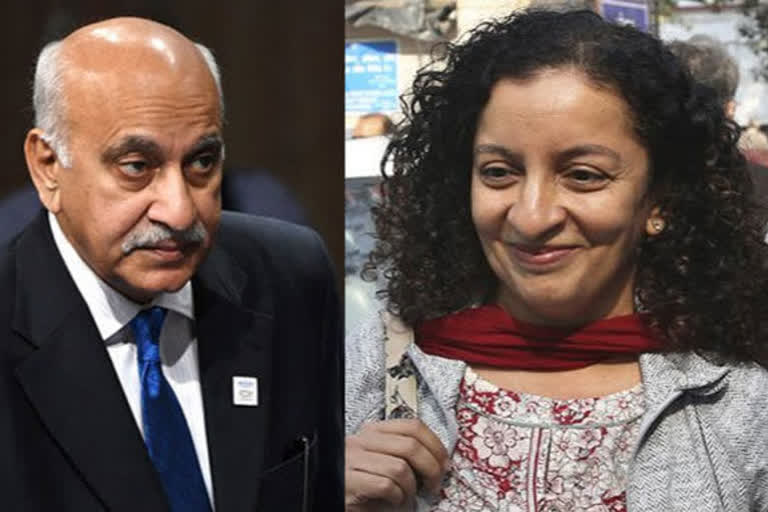New Delhi: A Delhi court on Wednesday acquitted journalist Priya Ramani in the criminal defamation complaint filed by MJ Akbar on her allegations of sexual harassment against him.
"The woman has the right to put her grievances at any platform of her choice and even after decades," Additional Chief Metropolitan Magistrate Ravindra Kumar Pandey noted.
The court further said that right of reputation cannot be protected at the cost of right to dignity. "Women cannot be punished for raising voice against the sexual abuse in the pretext of complaint of defamation."
The Additional Chief Metropolitan Magistrate also took consideration of the systemic abuse at workplace. He said that the time has come for the society to understand the implication of sexual harassment.
"I am feeling amazing, to have my truth vindicated in a court of law is really something," Ramani told reporters after being acquitted in the case.
Additional Chief Metropolitan Magistrate Ravindra Kumar had on February 1 reserved the judgment for February 10 after Akbar as well as Ramani completed their arguments.
However, on February 10, the court deferred the judgment for February 17, saying the verdict was not complete since both the parties filed their written submission late.
Ramani had made an allegation of sexual misconduct against Akbar in the wake of #MeToo movement.
In 2017, Ramani wrote an article for a magazine where she described her ordeal of being sexually harassed by a former boss during her job interview for his publication.
Read: Judge in MJ Akbar case against Priya Ramani transferred
One year later, she revealed that the person alluded to as harasser in article was MJ Akbar.
Akbar had filed the complaint against Ramani on October 15, 2018 for allegedly defaming him by accusing him of sexual misconduct decades ago.
He resigned as Union minister on October 17, 2018.
The trial began in 2019 and went on for almost two years.
He has denied all the allegations of sexual harassment against the women who came forward during #MeToo campaign against him.
The judgement in the case is important as it sets a precedent for similar cases which arose from the discourse-changing #MeToo movement.
(With inputs from agencies)



